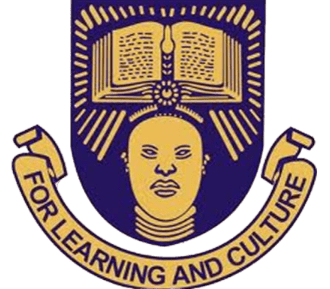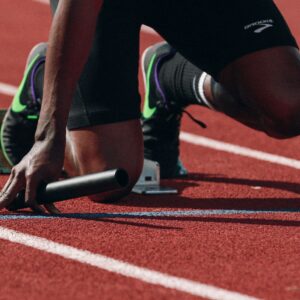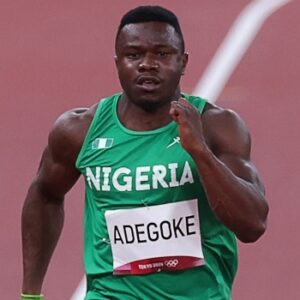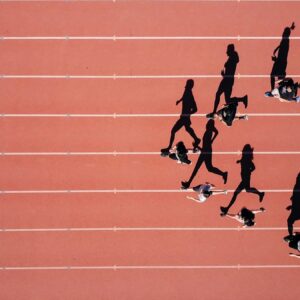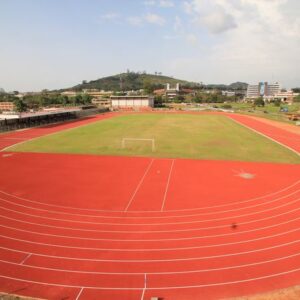HANDBALL
HISTORY OF THE SPORT
Handball has a rich history at Obafemi Awolowo University (OAU), growing in popularity alongside other sports since its introduction. Known for its fast-paced nature and combination of strategy, speed, and physicality, handball has attracted a dedicated following among students and staff. OAU’s handball program has contributed significantly to the university’s sports culture and success in national competitions.
Early Introduction and Development:
Handball was introduced at OAU in the 1970s, during the early expansion of sports programs at Nigerian universities. As the university’s sports infrastructure grew, handball became one of the sports officially recognized and supported by the university’s sports council.
Nigerian Sports Influence: Handball was gaining popularity across Nigeria in the 1970s and 1980s, following the sport’s increasing exposure in secondary schools and universities. With the introduction of handball into national competitions like the National Sports Festival and the Nigerian University Games Association (NUGA), OAU quickly adopted the sport as part of its sports offerings.
First Teams and Early Enthusiasts: OAU’s early handball teams were formed by students who had prior exposure to the game, either in their secondary schools or through informal training. These early enthusiasts laid the groundwork for the sport’s formal establishment at the university, organizing friendly matches and representing OAU in inter-university competitions.
Formation of the OAU Handball Team:
Official Team Structure: By the late 1970s, the OAU Handball Club was officially established. The club was responsible for organizing handball training sessions, matches, and competitions, and it soon attracted a growing number of participants. The university’s sports council provided coaching, training equipment, and facilities to support the team’s development.
Handball as an Official Sport: Handball quickly became one of the core sports recognized by the university, alongside football, basketball, athletics, and others. The establishment of the official OAU Handball Team allowed the university to compete in regional and national competitions, helping to build the sport’s profile at OAU.
Handball Competitions and Achievements:
Interfaculty Competitions: As with many sports at OAU, handball became a feature of the interfaculty sports competitions, where different faculties formed teams to compete against one another. The handball matches during these competitions were highly competitive, with teams displaying great athleticism, coordination, and strategy. The interfaculty handball tournaments have remained a popular and integral part of the university’s sports calendar.
Nigerian University Games Association (NUGA): Handball at OAU gained national prominence through the Nigerian University Games Association (NUGA). OAU’s handball team consistently competed in the NUGA tournaments, representing the university against other Nigerian institutions. OAU has had a history of strong showings in NUGA handball tournaments, regularly advancing to the later stages and winning medals.
External Competitions: In addition to NUGA, OAU’s handball team participated in several regional and national handball competitions. The team often competed against other universities, polytechnics, and local handball clubs, further honing their skills and solidifying their reputation as one of the top university handball teams in Nigeria.
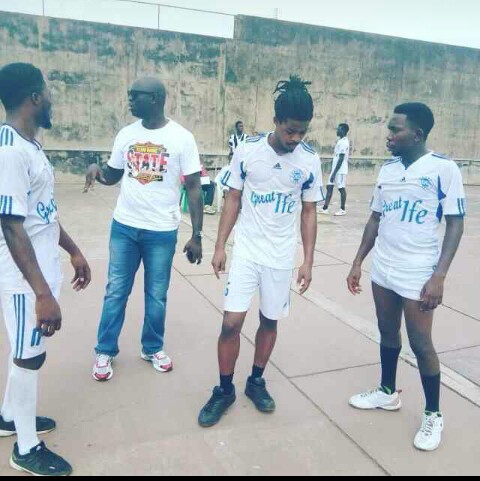
Handball Facilities at OAU:
Sports Complex and Courts: The OAU Sports Complex includes dedicated handball courts that serve as the home ground for the university’s handball teams. These courts are used for training sessions, interfaculty competitions, and official matches, providing the necessary infrastructure for the sport’s development on campus.
Training and Coaching: OAU has always prioritized quality coaching for its handball teams. Experienced coaches have been employed to train the players, focusing on developing their technical skills, fitness, and teamwork. Regular training sessions, drills, and practice matches have helped OAU’s handball players stay competitive at the highest level.
Handball Culture at OAU:
Widespread Participation: Handball has always enjoyed widespread participation at OAU, especially during interfaculty tournaments. The game’s fast pace and physically demanding nature attract many athletes who appreciate the sport’s combination of speed, strategy, and team dynamics. The participation of both male and female teams has also contributed to the sport’s inclusivity at the university.
Gender Inclusivity: Handball at OAU has been inclusive, with both men’s and women’s teams competing in interfaculty and national tournaments. Women’s handball has grown significantly on campus, and the women’s team has been just as competitive as their male counterparts in NUGA and other competitions.
Community Support: Handball matches at OAU are often well-attended, especially during interfaculty competitions and NUGA tournaments. The sport enjoys strong support from the university community, with students, staff, and even alumni regularly turning out to watch the games.
Achievements and Recognition:
NUGA Success: OAU’s handball team has consistently performed well at NUGA, often making it to the semifinals and finals of the handball competitions. The university has earned several medals in handball over the years, further solidifying its status as one of Nigeria’s leading institutions for the sport.
Notable Players: OAU’s handball program has produced several talented players who have gone on to represent their states and even Nigeria in national competitions. Some former OAU handball players have also played for professional handball clubs in Nigeria and beyond.
Handball’s Growth at OAU: Over the decades, handball has grown from being a niche sport at OAU to becoming one of the university’s most successful sports. The university’s sustained commitment to supporting handball, through training, facilities, and competitions, has ensured that the sport continues to thrive on campus.

Challenges and Opportunities for Growth:
Facilities and Funding: While handball has a dedicated following at OAU, the sport, like many others, faces challenges in terms of maintaining and improving its infrastructure. The university’s handball courts are heavily used, and regular maintenance is needed to keep them in top condition. Additionally, handball players have often faced challenges in accessing adequate training equipment and resources.
Balancing Academics and Sports: Like other student-athletes at OAU, handball players must balance their academic responsibilities with their commitments to the sport. This balancing act has sometimes posed challenges, but the university’s sports council has worked to provide academic support to athletes.
Expanding Women’s Handball: While women’s handball at OAU has made significant strides, there is potential for further growth. Expanding opportunities for training, competition, and participation in regional and national tournaments could help elevate the profile of women’s handball on campus.
Recent Developments:
Continued Success: In recent years, OAU’s handball team has maintained its position as one of the top university teams in Nigeria. The team continues to compete in NUGA and other national competitions, with many young players coming through the ranks to represent the university at a high level.
Grassroots Development: OAU has focused on developing young handball talent through its outreach programs and partnerships with secondary schools. By introducing handball to younger students and offering them the chance to train with the university’s team, OAU is ensuring that the sport will continue to grow and thrive.
Conclusion:
Handball at Obafemi Awolowo University has a long and proud history, marked by consistent success in national competitions, widespread participation, and a deep-rooted sports culture. The university’s handball teams, both men’s and women’s, have made significant contributions to OAU’s sports legacy, with strong performances in NUGA and other tournaments. As the university continues to invest in sports infrastructure and talent development, handball at OAU is poised for even greater success in the future.
ONGOING EVENTS
OSUN MATCH
September 24, 2020
Mestalla Stedium
HALL OF FAMES
Check out wonderful achievements of the University Sportsmen
